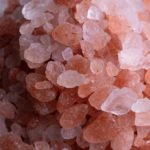25 interesting facts about hydrogen
 It is hydrogen that surrounds us everywhere, and it is present not only in water. And let its reserves on Earth be finite, in the Universe surrounding us it is full. True, while mankind uses this chemical element only in a limited way, but not far off the future, when it becomes the main fuel and will provide all of us with clean energy.
It is hydrogen that surrounds us everywhere, and it is present not only in water. And let its reserves on Earth be finite, in the Universe surrounding us it is full. True, while mankind uses this chemical element only in a limited way, but not far off the future, when it becomes the main fuel and will provide all of us with clean energy.
Stars are mainly made up of hydrogen. Our Sun, for example, accounts for about 74%. Another 24% is helium, the rest are other elements.
A conventional gasoline-powered internal combustion engine, after minor modifications, can run on hydrogen fuel.
Of all the gases, hydrogen is the most volatile. This complicates the process of its storage and transportation.
It also has the highest thermal conductivity among gaseous substances.
Since the nucleus of a hydrogen atom consists of only one proton, the element was given the corresponding derivative name “protium”. This is the only stable element that does not have neutrons in the nucleus.
The protium content is estimated at approximately 99.9885 ± 0.0070% of the total number of hydrogen atoms in the known Universe. Accordingly, the most common chemical element in the Universe is precisely hydrogen.
Hydrogen-3, aka tritium, is widely used in some industries. In particular, it is now being used to illuminate the hands and dials of watches in the dark. But the production of one kilogram of tritium costs about $ 30 million dollars.
On average, humanity consumes about 75 million tons of hydrogen annually. Most of it is absorbed by ammonia production and the oil industry.
Some scientists and industrialists believe that asteroids will become major centers of hydrogen production in the near future. Others claim that other planets of the solar system – gas giants – can serve as its sources.
On Earth, anaerobic digestion of garbage and ordinary household waste is a promising method for producing hydrogen. This technology was tested in 2006, and since then it has been gradually developing.
Various automotive companies are actively developing vehicles with hydrogen engines. Already in 2007-2008, BMW released the BMW 7 Hydrogen model, which could run on gasoline and liquid hydrogen.
This gas has neither taste nor smell, and its presence in the air is impossible to feel. This is a problem because in combination with oxygen it is extremely explosive.
Most of the hydrogen on Earth exists in molecular compounds such as water or organic matter.
Under stellar temperatures (for example, the surface temperature of the Sun ~ 6000 ° C), hydrogen exists in the form of a hot plasma.
Some green algae, for example, the species Chlamydomonas reinhardtii, can produce this element. They can get it from seawater or sewage. If algae lack oxygen and sulfur, then the photosynthesis processes in them are sharply weakened and rapid production of hydrogen begins.
For the first time, the Swiss alchemist Paracelsus received hydrogen by immersing iron filings in sulfuric acid in the 16th century.
Medieval scholars called it “combustible air.” This name arose after they discovered that water is formed after the combustion of hydrogen.
This is the lightest gas of all. It is lighter than air by 14.5 times.
Hydrogen molecules move faster than molecules of any other gas.
It is highly soluble in most metals. Silver is an exception.
Solid hydrogen is visually similar to snow. But it melts at a temperature of -262 C °, which is not much different from absolute zero.
In the bowels of some gas giants, hydrogen acquires metallic properties. Scientists have discovered that this occurs at a pressure of about 250,000 atmospheres. With such a monstrous pressure, even atoms are compressed in molecules.
Once airships and balloons were filled with hydrogen, but in the 30s of the XX century there were several disasters during which the airships exploded and burned. Nowadays, airships are filled with helium, despite its significantly higher cost.
Hydrogen is registered as a food additive E949 – packaging gas, class “Other”.
The air consists of nitrogen and oxygen, but nitrogen does not interact with our organisms in any way. Hydrogen, too, and if we replace it with nitrogen, we could just as well breathe this mixture. But it would be incredibly flammable and explosive.



























